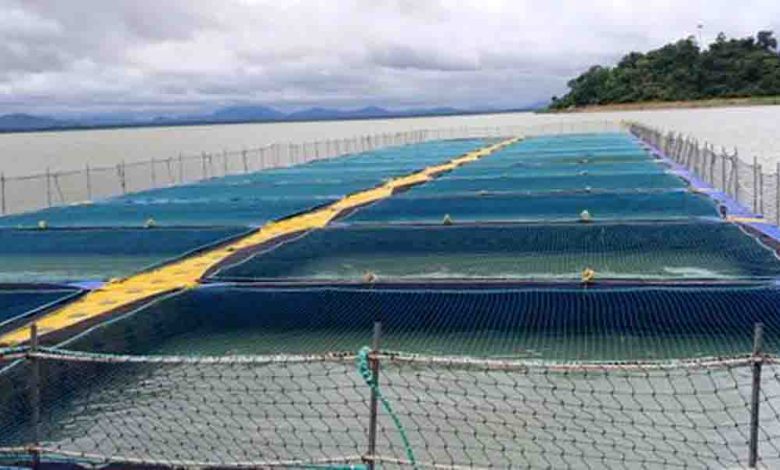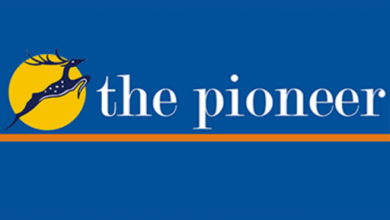Mari-tech eco parks can be India’s pathway to sustainable global marine food hub

Thursday, 23 June 2022 | Shaji Baby John | in GUEST COLUMN
 Shaji Baby John
Shaji Baby John

Imagine a model of world-class eco-friendly aquaculture infrastructure that could be replicated across the globe with the necessary tweaking to suit the agro-climatic conditions in specific regions. The Kings Mari-Tech Eco Park, a work in progress at Toothukudi in Tamil Nadu, is such an entity with the potential to transform India into a global marine food hub. The project borne out of over four decades of expertise in integrated semi-intensive aquaculture, marine food processing and export is designed to meet the challenges of ensuring healthy and quality protein to a burgeoning population even as global warming threatens to disrupt many of the prevailing farming practices.
Game changers
Kings Infra Ventures has zeroed in on the concept of integrated mari-culture tech-park after taking into consideration the evolving macro and micro level ecosystem marked by ecological, economical, and livelihood challenges facing the society. The priority according to our perspective would be the creation of the infrastructure for the ecological, social, and economic sustainability in the aquaculture industry. The need for combating global warming and climate change while creating carbon-negative food production systems leaves us with no option other than to look for innovative solutions. The concept of carbon-negative food production has to be reinforced with the idea of creating high-quality and healthy protein to sustain the requirements of a growing global population. Aquaculture has been identified as an important source for meeting the growing demand for high-quality protein in a socially and economically sustainable manner.
Global warming
The increase in average surface temperature leading to global warming and climate change is posing a grave threat to the existing ecosystem as a whole. The series of research findings by reputed global institutions show that the fallout from global warming needs to be addressed on a priority basis. Environment-friendly and carbon-negative food production has been identified as a major instrument in combating the ill effects of global warming. Aquaculture would have a major role in the development of a carbon-negative food production system filled with healthy proteins. The rampant use of pesticides and antibiotics in food production is another cause of worry. The antibiotic and other chemical residuals in the food chain are posing health hazards to humans and the environment. The introduction of symbiotic farming practice is one of the methods to move away from harmful farming practices using antibiotics and chemical pesticides. The focus of symbiotic farming based on eco-friendly and sustainable practices envisages a high-quality food production system with end-to-end traceability using the potentials inherent in artificial intelligence, the internet of things and blockchain technology.
Futuristic model
The mari-culture tech park conceived and developed by our company proposes a futuristic model that could be replicated and adapted across the world. The integrated park is designed to mimic the natural marine system in the food production cycle. The Eco Mari-Culture Units (EMU), the core component of the park, are the basic food production module involved in the farming of shrimps and other aquaculture species. The EMUs, a closed-loop farming system, are dedicated to sustainable practices fitted with plug and play modules. The entire system is subjected to 24/7 monitoring by the built-in system using information technology tools. The project conceives each EMU as an integrated system of multiple technologies and sustainable practices such as the Recirculating Aquaculture Systems (RAS) Biofloc System, System Automation, AI and IoT, design optimisation and advanced monitoring.
Farmer producer organisations
Farmer Producer Organisations (FPOs) are another pillar of the project. FPOs would be provided with end-to-end solutions and services in shrimp farming. The plan is to create a network of 10,000 aqua entrepreneurs across the country and handhold them to this game-changing platform of integrated eco-friendly and sustainable food production systems. The project also has a dedicated division to support eligible entrepreneurs on the benefit of the schemes and facilities provided by central and state governments in the fisheries and marine products sector.
Solar power
The setting up of solar power is another highlight of the project. Closed-loop indoor farming is a power-intensive system due to the need for maintaining oxygen supply continuously to the farming tanks. Rooftop solar panels could be installed in the indoor facilities to generate the required green power. The green power generated could be consumed during the day while the storage devices take care of requirements at night. The surplus power would be utilised for other units within the tech-park.
Paradigm change
The fully integrated mari-culture tech park project has the potential to herald a completely nature-friendly system of aquaculture farming practice across the globe. The project blends well with the blue economy initiatives of the Union and State governments. The ecological, social and economic impacts of the project could be articulated in the following manner.
Ecological impact: (i) Carbon-negative food production system with 99 per cent water recycling and support to the local flora and fauna. (ii) Bio-fencing ensures that no adverse impact of any kind would be felt by the surrounding environment.
Social impact: Formation of FPOs, food security, the creation of agri-aqua entrepreneurs, a transparent system to channel government schemes and subsidies to the intended population and the involvement of more women in the workforce are some of the key elements of social impact.
Economic impact: Benefits accruing to a section of people belonging to the bottom of the income pyramid with the project opening new opportunities for members of the coastal communities. Stable and predictable economic returns leading to informed financial planning would be another important benefit. Employment and infrastructure development opportunities and an online system of procurement would further improve the economic empowerment of the coastal community.
The investor’s community would have a good opportunity to be stakeholders in the venture with the possibility of steady and assured returns. The company would be pursuing a Public-Private-Partnership model with the support of State governments to set up integrated mari-culture ventures in different parts of the country. The huge stretches of salinity-afflicted and degraded land lying idle without much scope for productive farming in states like Tamil Nadu, Gujarat and Rajasthan could be converted into integrated parks for aquaculture. As I have stated earlier the project could be replicated anywhere in the world. The success of the venture, expected to be displayed sooner than later, has all the potential to place India as a global hub of healthy and protein-rich high-quality marine food products.
(The author is the chairman of Kings Infra Ventures Limited who also writes on the blue economy and sustainable food production system. Views expressed are personal)





